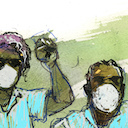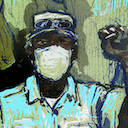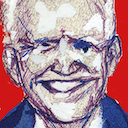
Multiple Mainstreams
Only public investment will deliver a media that can serve the news needs of our time.


Only public investment will deliver a media that can serve the news needs of our time.

The rich and powerful use racism to protect their interests and scapegoat communities of color. But there is an effective way to talk about both race and class when organizing for multiracial democracy.

The left is at its most intelligent and most ethical when it believes—and vigorously promotes the belief—that everyone has the right to be heard.

Free speech, like any freedom struggle, is about power.

Liberal appeals to truth will not stop fascists.

The more acceptable it is to denounce people because of their speech, the more likely it is that it will eventually happen to you.

What gives leftists the space to promote unpopular positions is the respect most Americans give to free speech.

Purity is a luxury only the privileged can afford.

Even after a massive redistribution of resources, there will remain a need for an agency with the authority to investigate, restrain, and detain those who insist upon criminally victimizing their neighbors.

Tight-knit communities where residents have access to basic resources and strong local institutions are safer places to live.

We have written so much about the police in recent months but said too little about what we really want and expect from them.

Today’s novel New Deal coalition offers the only plausible chance for progressive reforms.

Police nationalism is rooted in conservative ideas of law and order, but it has also been sustained by decades of liberal police reform.

In the United States, sick patients spend hours coordinating, haggling, and sometimes pleading with the healthcare system. Can these frustrations become a source of radical change?

The Turkish government’s crackdown on protests at Boğaziçi University earlier this year has brought together the broadest coalition of AKP opponents since the 2013 Gezi Park protests.